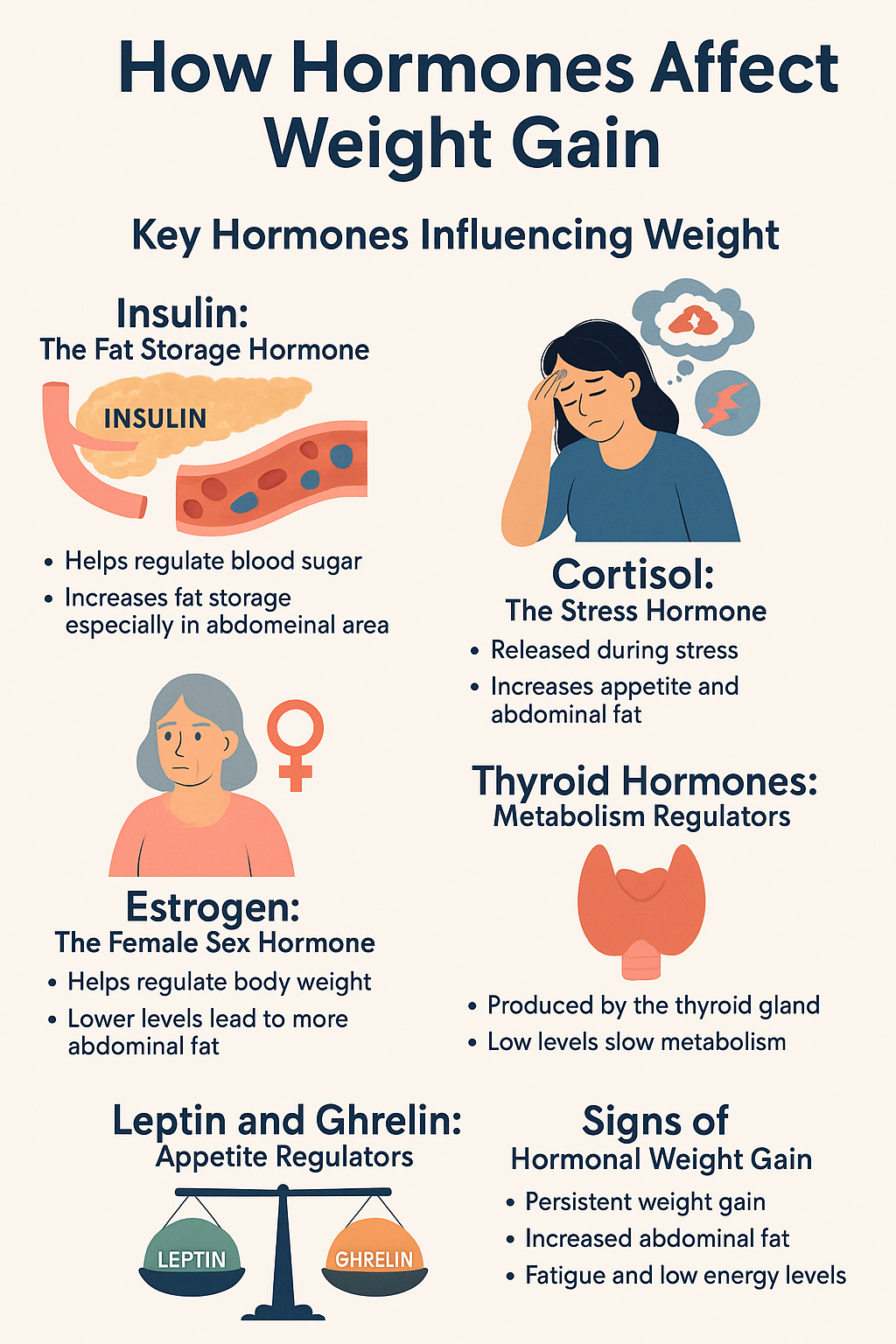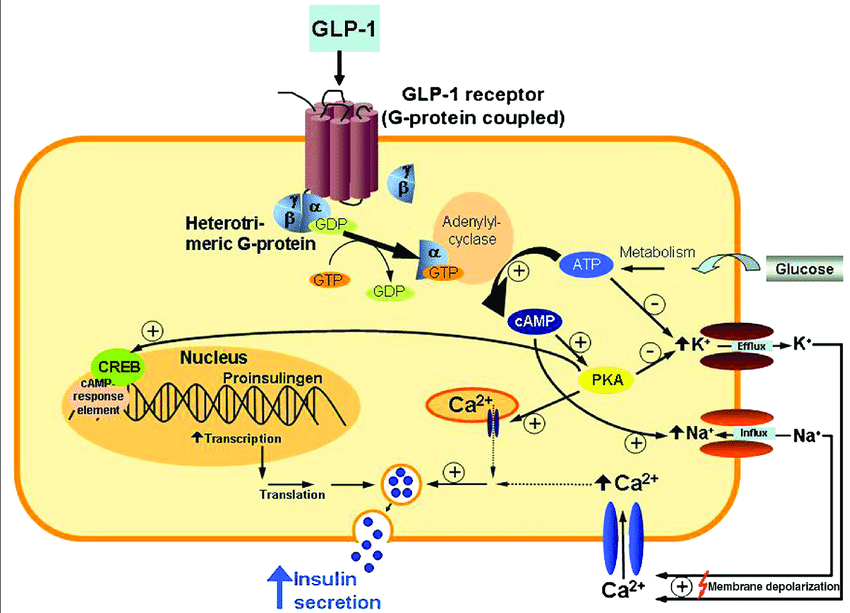🧬 How Hormones Affect Weight Gain: Understanding the Connection
Weight gain isn’t solely about calories consumed versus calories burned. Hormones—our body’s chemical messengers—play a pivotal role in regulating metabolism, appetite, fat storage, and energy levels. When these hormones are imbalanced, they can lead to unexpected weight changes, particularly around the abdomen.
🔑 Key Hormones Influencing Weight
1. Insulin: The Fat Storage Hormone
Insulin helps regulate blood sugar by facilitating glucose uptake into cells. However, excessive carbohydrate intake can lead to insulin resistance, where cells become less responsive to insulin. This condition often results in increased fat storage, especially in the abdominal area.

2. Cortisol: The Stress Hormone
Cortisol is released during stress and helps the body manage energy. Chronic stress can lead to elevated cortisol levels, promoting fat accumulation around the midsection and increasing appetite for high-calorie foods.
3. Estrogen: The Female Sex Hormone
Estrogen helps regulate body weight and fat distribution. During menopause, estrogen levels decline, leading to a shift in fat storage from the hips and thighs to the abdomen.womenshealthdenton.com+1Live Well Zone+1
4. Thyroid Hormones: Metabolism Regulators
The thyroid gland produces hormones that control metabolism. Hypothyroidism, a condition where the thyroid is underactive, can slow metabolism, leading to weight gain and fatigue.
5. Leptin and Ghrelin: Appetite Regulators
Leptin signals fullness, while ghrelin stimulates hunger. Imbalances in these hormones can disrupt appetite control, leading to overeating and weight gain.
Suggested Image:
Illustration depicting the balance between leptin and ghrelin in appetite regulation.
⚠️ Signs of Hormonal Weight Gain
- Persistent weight gain despite diet and exercise
- Increased fat around the abdomen
- Fatigue and low energy levels
- Mood swings and depression
- Irregular menstrual cycles
- Sleep disturbancesVerywell Health
✅ Strategies to Balance Hormones and Manage Weight
- Nutrition: Adopt a balanced diet rich in whole foods, fiber, and healthy fats. Limit processed foods and sugars.
- Exercise: Engage in regular physical activity, including both cardio and strength training.
- Stress Management: Practice relaxation techniques like meditation, yoga, or deep breathing exercises.
- Sleep: Aim for 7-9 hours of quality sleep per night to regulate hormone production.
- Medical Consultation: If experiencing symptoms of hormonal imbalance, consult a healthcare provider for evaluation and potential treatment options.
📸 Additional Visual Resources
- Hormonal Weight Gain Symptoms:
Infographic detailing common symptoms associated with hormonal imbalances. - Healthy Lifestyle Choices:
Image promoting balanced nutrition and regular exercise for hormone regulation.
Understanding the intricate relationship between hormones and weight gain empowers individuals to take proactive steps towards achieving hormonal balance and maintaining a healthy weight.
Note: Ensure you have the appropriate rights or licenses to use the suggested images on your blog. If you need assistance sourcing royalty-free images or creating custom visuals, feel free to ask!



